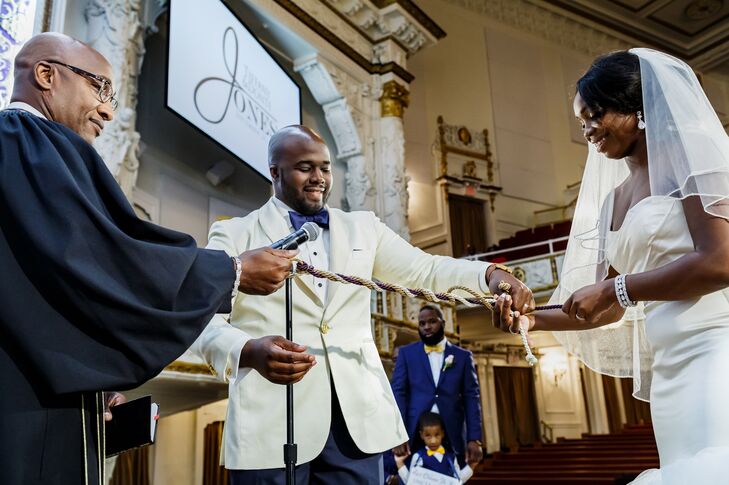Many of us know about the popular African-American wedding ritual, “jumping the broom”, which has deep roots in the past with claims that it was passed down through slavery.
The marriage custom continues to cause controversy among would-be couples, who do not know whether to engage in the practice or not, particularly due to issues surrounding its origins and significance.
But whether it is an ancient West African, Welsh or British tradition, jumping the broom has brought immense value to couples who decided to include it in their wedding ceremony.
Interestingly, apart from “jumping the broom”, there are other significant African-American wedding traditions you can incorporate in your marriage ceremony if you really want to celebrate your roots on that big day. Here are some of them:

In recent years, the knocking ceremony takes place in the form of a family dinner where both families are joined together. Photo: Shutterstock
Knocking
This tradition, which can be traced to Ghana, requires the groom to ask the family of the bride permission to marry their daughter. Known as “kokooko” or “knocking on the door”, the man, accompanied by his family, will visit the home of his potential in-laws with gifts. If the woman’s family accepts his “knock”, he and his family will present their gifts to their in-laws and make their intentions known. The bride will be called in; if she accepts the man, their engagement is now official and both families can now plan for the wedding. In recent years, the knocking ceremony has taken place in the form of a family dinner where both families are joined together before the wedding is planned.

Credit: The Knot
Tying the knot
Practised among some African tribes and now very popular among African-American couples, this ritual requires a bride and a groom to have their wrists tied together with cloth, decorated rope or braided grass (these materials symbolise prosperity and fertility). While their wrists are tied together, the couple will say their vows, affirming their commitment.

Photo: The Knot
Crossing sticks
Practised since the years of slavery, this ritual represents unity and the desire of the couple to have a strong start in their marriage. The bride and the groom, in this ritual, will cross tall wooden sticks together and go on to exchange their vows. Some couples choose large branches, especially from the homes of both families for this ritual.

Photo: Pinterest
The four elements
The Yoruba tradition requires the couple to get a taste of four flavors that represent various stages within a marriage. These are lemon for sourness, vinegar for bitterness, cayenne for spiciness and honey for sweetness. Having tasted all these flavors, the bride and the groom are basically demonstrating that they will be able to stay united for better or for worse.

Photo: sunnewsonline.com
Kola nut
Kola nut is the fruit of species of the kola tree, native to the tropical rainforests of Africa. Besides its medicinal properties, the caffeine-containing fruit of this tree has a long history of use in the preparation of beverages in most African societies. It is chewed in many West African cultures, largely during social settings like weddings, naming ceremonies, and funerals. It is key among weddings of African Muslims, where it serves as a symbol of fertility. Many African-American couples also exchange kola nut with family members during weddings to emphasise on “the need to always help heal each other.”










